Jawed Anwar
To truly grasp the 27th Amendment to Pakistan's Constitution, one must view it through the lens of history, military dynamics, global affairs, and regional geopolitics.
Donald Trump may speak of paths to peace, but in truth, he relentlessly pursues the road to war. He even rechristened the Department of Defense as the Department of War, leaving no room for doubt about his intentions.
Israel will receive carte blanche for genocide in Palestine, with an uninterrupted flow of arms. The flames of conflict in Ukraine will continue to rage, while a third front—India, Pakistan, and Afghanistan—lies wide open. Yet, at its core, this is solely the Afghan theater. The aerial skirmishes between India and Pakistan amount to little more than a public spectacle, a diversion for the amusement of their respective populations. The rulers on both sides count themselves fortunate that their people place blind, unwavering faith—100% certainty—in military and state-driven war narratives.
Since the end of World War II, no major conflict has unfolded without America's direct or indirect involvement. Whenever the United States required Pakistan's assistance, Pakistan has eagerly stepped up to serve.
This pattern of subservience did not begin in 1947; it traces back to the 19th century, when what is now the Pakistani military served as the faithful foot soldiers of the British Empire.
At every delicate turning point, America has relied on Pakistan's military leadership. Civilian governments, however, prove unpalatable in such moments and are swiftly ushered toward the exit.
The Soviet Union's invasion into Afghanistan was a blatant act of military aggression, but the U.S. had long anticipated the storm. To counter Russia, America prepared Pakistan for jihad with its support. A devout, prayerful Muslim General Muhammad Zia-ul-Haq was elevated to Army Chief.
At the time, Zulfikar Ali Bhutto's civilian government held sway—a regime thoroughly distasteful to Washington. A storm of public agitation was unleashed against him. My late uncle in Pakistan used to say that when America takes umbrage with someone here and decides to oust them, everyone—from children to elders—starts leaping six feet high, chanting: "We'll plow the bald man's pate, and the bald man will flee on his crown!" (This was a slogan hurled at the late Bhutto, whose hair was already quite sparse.)
General Zia-ul-Haq toppled the civilian government. Fearing Bhutto's thirst for vengeance if he survived, Zia pondered: A grave stood ready—one of them, Bhutto or Zia, would have to fill it. Bhutto was hanged, sealing the tomb.
Unfettered now, General Zia led Pakistan's intelligence apparatus and Afghan mujahideen in America's proxy war against the Soviet Union, ultimately breaking its back. Victory came, but the Afghan mujahideen groups refused to form the kind of government Washington desired. Zia, however, had become the beloved leader of these mujahideen factions—and thus, an undesirable in American eyes.
In 1989, General Zia-ul-Haq's plane crashed in a mysterious incident, claiming him and much of his inner circle. General Aslam Beg succeeded as Army Chief and promptly called elections. Late Zulfikar Ali Bhutto's daughter, Benazir Bhutto, emerged as the new elected Prime Minister.
President Ghulam Ishaq Khan, however, wielded the power to dissolve elected governments and cut Benazir's term short. Nawaz Sharif's government followed, only to meet the same fate. This cycle persisted. Both Benazir and Nawaz, as civilian leaders, were deemed "unfit"—incapable of installing America's preferred puppet regime in Afghanistan.
During Benazir Bhutto's second term, her Interior Minister, Naseerullah Babar—a former military man—trained Afghan students studying in Pakistani madrasas. They were ordered to return to war-torn Afghanistan, seize control, and establish a government. Armed and battle-ready, they were dispatched across the border. The warlords of the civil strife could not withstand them; after minor clashes, they captured Kabul.
Unlike the Afghan mujahideen who had fought the Soviets, the Taliban appeared to be America's choice—likely because the mujahideen championed a global Islamic banner, while the Taliban embodied a localized, confined version of Islam.
Washington presumed their faith would remain bounded by beards, caps, pajamas, prayer beads, and recitations—rendering them pliable tools for global trade, military agendas, and imperial interests. But that illusion shattered. The Taliban swiftly grasped the depths of global Islam and geopolitics. They refused to bow to American demands, instead instituting an interest-free economy and enforcing Sharia law. Enraged by this rejection of usury, the dollar, and Western capitalism's vanguard, America prepared its retribution.
General Pervez Musharraf, who enjoyed deep ties to both America and Israel, was rapidly promoted from the lower ranks. Upon becoming Army Chief, he was tasked with the Kargil incursion in Kashmir to cast him as a national hero.
For decades, the U.S. had kept Pakistan entangled in Indian-occupied Kashmir, aiming to pry India from the Soviet/Russian orbit into the American camp and open Indian markets to U.S. corporations. It seems these objectives were fully achieved in the wake of Musharraf's Kargil adventure.
In 2019, following a visit by Pakistan's political and military delegation to the U.S., India revoked Article 370 of its constitution, stripping Kashmir of its special status. The Mujahideen groups in Kashmir—once groomed for American purposes—were branded illegal, their leaders transformed from mujahid commanders to prison inmates.
Whatever Pakistan's establishment tells its people, the reality is stark: The Line of Control in Kashmir has become the de facto border. Pakistan was instructed: "Your utility on the eastern front is over; now focus on the western border with Afghanistan and continue serving us."
The new imperative was clear—join the American-led coalition to eradicate the Taliban mujahideen force and orchestrate the genocide of Pashtun supporters in Pakistan's northwest. Imran Khan balked at fully complying with this bloodletting, so he was granted his "leave." Now, Mian Shahbaz Sharif tirelessly salutes Washington without fatigue.
General Pervez Musharraf was a liberal at heart—a longtime ally of America and Israel, an ardent admirer of Kemal Atatürk. Naturally, he opposed the Islamic Taliban. When the U.S. resolved to purge the Taliban from Afghanistan (and Saddam Hussein from Iraq), Pakistan's two-thirds majority Muslim League (N) civilian government was toppled.
Musharraf, the "victor" of Kargil, was minted into a national hero—propaganda's alchemy turning a cipher into a champion, an adversary into an asset. Through his military coup, Musharraf seized control of Pakistan's black-and-white levers.
In America, the 9/11 attacks were orchestrated to pave the way for invasions of Afghanistan and Iraq.
Afghanistan was bombed first. Musharraf handed over Pakistan's Afghan ambassador, Mullah Abdul Salam Zaeef, to the U.S., etching one of diplomacy's darkest chapters. Thousands of Pakistanis and Pashtuns were arrested and extradited, furnishing the torture chambers of Guantanamo Bay and fueling the global drumbeat of the "War on Terror."
General Musharraf orchestrated massacres of Pakistani Muslims in Balochistan and Waziristan. He ordered the bombing of Islamabad's Red Mosque and Madrasa Hafsa, martyring hundreds of female students and teachers—most from Waziristan and the northwest.
Musharraf proved the ideal general for America's assault on the "Deen of Islam" (not faith per se, for deen is a way of life, while religion is confined to the masjid)—a campaign rebranded as the fight against terrorism, with the "War on Terror" label affixed.
General Musharraf, and every general after him, has waged this same war. Now, for this very mission, General (now Field Marshall) Asim Munir has been powered, and the 27th Amendment has rendered him an invincible force.
All of this forms part of the groundwork for an assault on Afghanistan.
New WhatsApp Channel: AsSeerah
E-mail: AsSeerah@AsSeerah.com
E-MAIL Subscribe: AsSeerah+subscribe@groups.io
Follow: AsSeerah Facebook Page AsSeerah X
Be the Writer’s Friend
https://www.facebook.com/JawedAnwarPage
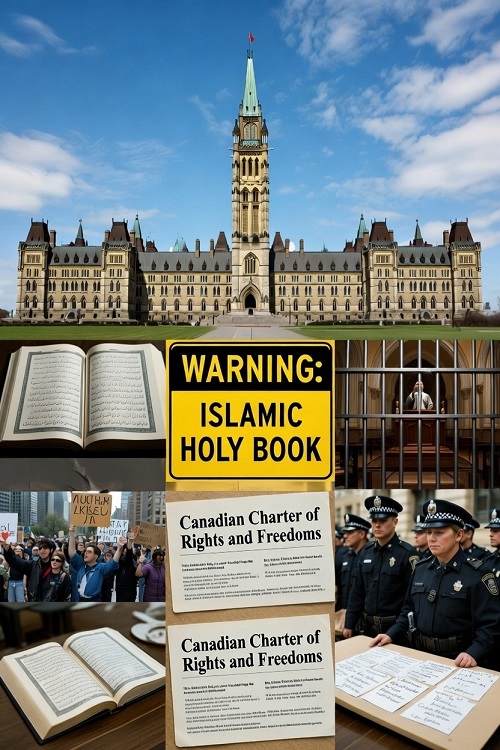

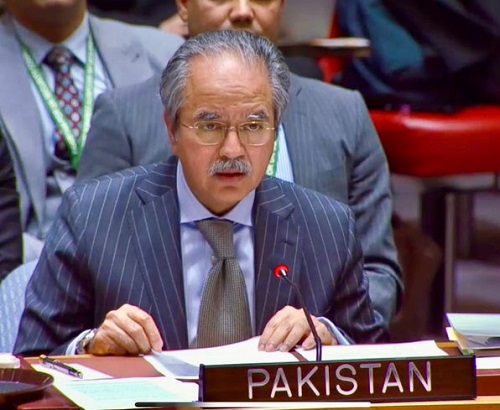
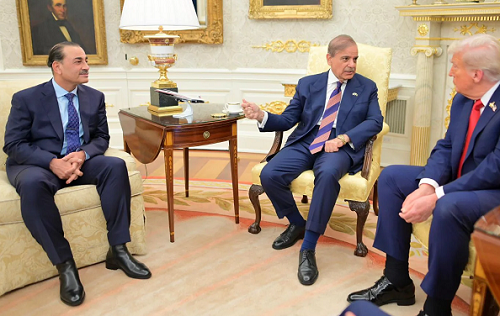
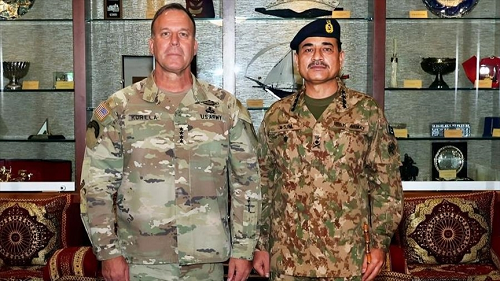


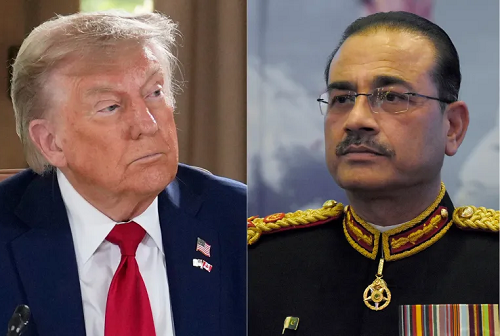
Comments
Imtiyaz Ahmed, Mississauga.
as-Salam Alaykum, sorry there is no such word as Jihadist, this was coined by the west - to blemish the Mujahideen and unfortunately we Muslims blindly copy them. It is Mujahidin - a noble word. since you write so well about the deen, surprises me that you have used such a word in your article above.
Jawed Anwar
Jazak Allah Khair for the comment. You are right. It is corrected.